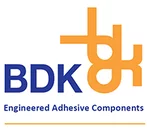When it comes to choosing a medical tape, there are a number of factors that need to be considered in order to determine which one is right for your application.
Medical Adhesive Tape Uses
Single-coated tapes are commonly used for wound care dressings, surgical tapes and electrodes. Medical device components tend to utilise double-coated tapes. The choice of an adhesive and backing can significantly impact many factors including wear time and comfort.
The Importance of Skin in Your Decision
As medical tape is applied directly to the skin, you need to consider the multi-faceted science of skin management. It is required to be compatible with the way the skin moves, sweats, breathes, stretches, heals, etc, and to be suitable for use on broken and unbroken skin.
Advancements in Medical Adhesive Technology
Even though there will never be the perfect, one-size-fits-all adhesive, the development of adhesives over the years strives to create bonding solutions for every kind of skin application. Selecting skin-friendly, hypoallergenic adhesive tape should have regard to the skin condition and age of the patient, the position of the medical dressing or device and the required wear-time, as well as the critical performance criteria for the application.
Breathable, long wear time, moisture-resistant and atraumatic are the desirable characteristics for medical tapes. Whether it’s modifying an existing technology or coming up with a completely new and innovative approach, the adhesive industry is always motivated to produce skin-friendly adhesives.
Considerations You Need to Make
Here are some important factors you need to consider when choosing medical tape.
Breathability
Skin needs to have the ability to breathe so this is a vital element to consider when choosing medical tape. Breathability allows the moisture to be released into the air rather than causing irritation, especially to sensitive skin. This is measured by the Moisture Vapour Transmission Rate (MVTR) which is tested using the Paddington Cup method, BS EN 13726-2:2002.
Soft silicone gel adhesives are permeable to water vapour meaning they are breathable and perforated to improve the MVTR. They are gentle on fragile skin, exhibiting a low peel adhesion which results in less skin trauma on removal and repositioning.
Allergies
It is important that the skin isn’t allergic to the medical tape. Either the tape or the adhesive can cause the allergy, and this can be identified by discomfort, itching or increased redness around the specific area.
Adhesives applied to the skin should be hypoallergenic meaning they avoid causing any allergies. Repeated patch testing is undertaken on healthy volunteers during a two or three-week period, and the result must show no evidence of sensitisation potential for an adhesive to be classified as hypoallergenic.
As well as this, medical tapes should conform to ISO 10993 and undergo tests to ensure biocompatibility. This includes ISO 10993-5, assessment of toxic effects of adhesive extracts on cell cultures, and ISO 10993-10, the evaluation of the irritation potential of the adhesive formulation and mechanical trauma of removing the adhesive from skin.
BDK Medical Adhesive Tape Converters
At BDK, we are highly experienced in manufacturing and distributing adhesive tapes for the medical industry. After being in the industry for a number of years, we can lean on our expertise to help clients find the perfect adhesive solution for them. Contact us today to see how we can help you.
